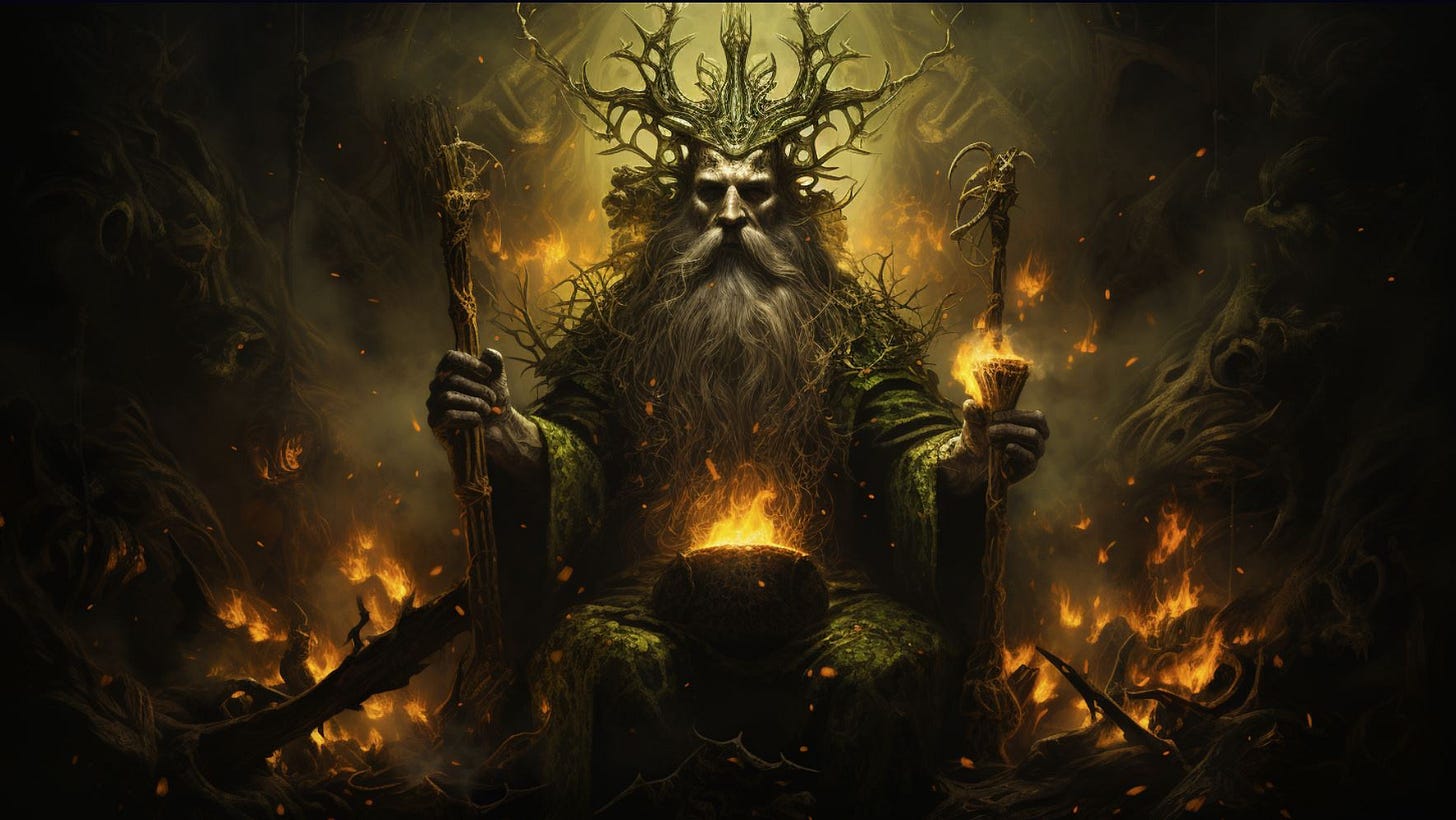In Celtic mythology, Donn is commonly referred to as the god of the dead or the afterlife. He is described as a ruler of the underworld, a place of rest and peace. Don was said to be a powerful and wise god with a presence that could be felt by all.
In Celtic myths, Donn was also associated with the sun, the stars, and the moon. He was also known as the god of the sea, the wind, and rain. He was the father of all the gods and goddesses in the Celtic pantheon.
The Celtic people believed Donn was the source of all life and death. He was thought to have been the one who provided humans with their souls and life force. He was said to give humans a chance at a better life after death.
His presence was said to be a source of comfort to the Celts in times of grief and sorrow. His connection to the spiritual realm was seen as a symbol of hope and protection in the afterlife.
In Celtic culture, it is believed that Donn was the guardian of the dead. He was thought to be responsible for escorting the souls of the deceased to their eternal rest. It is said that he protected and guided them during their journey.
Tech Duinn: The House of Donn
Within Celtic Mythology Tech Duinn holds a significant place as the dwelling of Donn, the esteemed god associated with the realm of the dead. This mystical abode, shrouded in ancient lore, encompasses various aspects, including exploration, beliefs, rituals, and folklore.
Tech Duinn is often described as an otherworldly place where the souls of the departed find their eternal rest. It represents the gateway between the mortal realm and the realm of the dead.
It is often described as a supernatural realm of everlasting youth, beauty, health, abundance, and joy—a parallel world that exists alongside our own or as a heavenly land beyond the sea or under the earth.
The Otherworld is usually elusive, but various mythical heroes visit it either by chance or after being invited by one of its residents. They often reach it by entering ancient burial mounds or caves, going underwater, or crossing the Western Sea.
Sometimes, heroes suddenly find themselves in the Otherworld with the appearance of a magic mist, supernatural beings or unusual animals. An otherworldly woman may invite the hero into the Otherworld by offering an apple, a silver apple branch, or a ball of thread to follow as it unwinds.
The Otherworld is usually called Annwn in Welsh mythology and Avalon in Arthurian legend. Irish mythology has several names, including Tír na nÓg, Mag Mell (or Magh Meall = Plain of Honey) and Emain Ablach.
Ynis Avalach is the original of Avalon. Emain Ablach is also Inis Abhlach (Place of Apples, Isle of Apples in Old Irish). In Irish myth, there is also Tech Duinn, where the souls of the dead gather. Stories also mention the Land under waves (which can be sea or grass) and the Land of the Big Women.
The Gauls divided the universe into three parts: Albios ("heaven, white world, upper world"), Bitu ("world of the living beings"), and Dubnos ("hell, lower world, black world"). The Gaulish druids believed that the soul went to an Otherworld, which he calls by the Latin name Orbis alius, before being reincarnated.
Greco-Roman geographers tell us about Celtic belief in islands consecrated to gods and heroes. Among them were Anglesey (Môn), off the north coast of Wales, which was the sacred isle of the druids of Britain; the Scilly isles, where archaeological remains of proto-historical temples have been found; and some of the Hebrides, which were in the Gaelic tradition, home to ghosts and demons: on one of them, Skye, the Irish hero Cúchulainn was taught by the warrior woman Scathach.
Donn was also said to be the god of justice and judgment.
He was believed to determine the fate of those judged after death and reward the virtuous with a peaceful afterlife.
The Celts believed that Don was a symbol of fertility and harvest.
He was thought to be the one who provided the land with bountiful harvests and abundance.
Although Donn is mainly known as the god of the dead, he is also associated with the natural world and its elements. He was believed to bring balance and harmony to nature and its creatures.
Donn is an essential figure in the Celtic pantheon.
He was the source of life and death, the guardian of the afterlife, and the one who provided justice and hope to the Celts. He was the god of fertility and abundance and brought harmony and balance to nature.
Don was a powerful and wise god, a figure of comfort in times of sorrow and a symbol of hope in the afterlife.
Alan /|\





Hi Alan. Great info. Curious to what degree you find AI/ChatGPT useful in collating data for your articles?